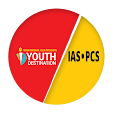In this article, we will discuss some of the best strategies that can help UPSC aspirants enhance their reading abilities. The UPSC (Union Public Service Commission) examination is a highly competitive and prestigious exam in India that requires candidates to have excellent reading speed and comprehension skills. Aspirants must cover vast amounts of information from various subjects within a limited time frame. To succeed in this examination, it is crucial to develop effective strategies for improving both reading speed and comprehension.
Reading speed and comprehension play a pivotal role in the success of UPSC candidates. The UPSC examination evaluates a candidate's understanding of complex topics, analytical thinking, and decision-making skills. Therefore, it is essential to adopt strategies that optimize reading speed and enhance comprehension.
Importance of Reading Speed and Comprehension for UPSC
The UPSC examination is known for its vast syllabus, which includes subjects like history, geography, polity, economics, and current affairs. Candidates need to comprehend and retain information from multiple sources, such as textbooks, newspapers, magazines, and online resources. By improving their reading speed and comprehension, aspirants can cover more material and extract valuable insights, leading to better performance in the exam.
Understanding the Challenges
Before diving into the strategies, it is essential to understand the challenges that UPSC aspirants face regarding reading speed and comprehension. Some common challenges include:
a) Limited time for preparation
b) Difficult and lengthy passages
c) Technical and domain-specific language
d) Distracting and overwhelming amount of information
By acknowledging these challenges, aspirants can tailor their strategies to overcome them effectively.
Strategies for Improving Reading Speed
1. Skimming and Scanning: Skimming and scanning techniques involve quickly going through the text to identify key information. Skimming helps in getting a general overview, while scanning allows for locating specific details. Practicing these techniques can significantly improve reading speed without compromising comprehension.
2. Active Reading Techniques: Active reading involves engaging with the text actively. It includes techniques like highlighting important points, making annotations, and asking questions while reading. These techniques help improve focus and concentration, leading to better retention of information.
3. Chunking Information: Chunking involves grouping information into smaller, manageable units. Breaking down complex passages into smaller sections helps in better comprehension and reduces the cognitive load on the reader. Aspirants can practice chunking by identifying the main idea of each paragraph and linking them together to form a coherent understanding.
Strategies for Improving Reading Comprehension
1. Previewing and Predicting
Before reading a passage, previewing involves quickly glancing through the headings, subheadings, and bolded text. This technique gives an overview of the content and helps in formulating predictions about the passage's main ideas. Predicting encourages active engagement with the text and enhances comprehension.
2. Questioning and Summarizing
While reading, candidates should develop a habit of asking questions about the material. This fosters critical thinking and helps in clarifying doubts and understanding the text deeply. After reading a section or paragraph, it is beneficial to summarize the main points in your own words. This not only reinforces comprehension but also aids in retaining information for future reference.
3. Making Connections
Building connections between the text and your existing knowledge or experiences can enhance comprehension. Look for similarities, patterns, or examples that relate to what you already know. Making these connections helps in contextualizing the information and facilitates a deeper understanding of the subject matter.
Tips for Effective Time Management
Improving reading speed and comprehension also requires efficient time management. Here are some tips to help UPSC aspirants make the most of their study time:
1. Set Priorities - Identify the most important topics and allocate more time to them. Focus on areas that carry more weightage in the examination.
2. Create a Schedule - Plan your study sessions and allocate specific time slots for reading and comprehension practice. Stick to the schedule and avoid distractions during these dedicated study periods.
3. Practice Regularly - Consistency is key. Set aside a fixed amount of time each day for reading and comprehension exercises. Regular practice will gradually enhance your speed and comprehension skills.
4. Take Breaks - Break your study sessions into smaller intervals and take short breaks in between. This helps in maintaining focus and preventing mental fatigue.
5. Review and Revise - Regularly review and revise the material you have covered. This reinforces comprehension and helps in retaining information for a longer duration.
Conclusion
Improving reading speed and comprehension is a crucial aspect of UPSC preparation. By implementing effective strategies such as skimming, active reading, chunking, previewing, questioning, summarizing, making connections, and managing time efficiently, aspirants can enhance their performance in the examination. Remember to practice these techniques consistently and adapt them to suit your learning style. With dedication and perseverance, you can develop strong reading abilities that will contribute to your success in the UPSC exam.



.png)
















0 Comments